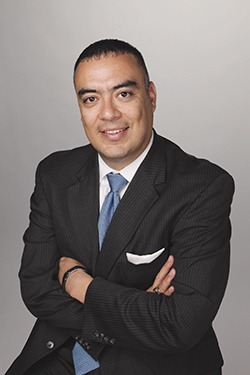R.E.A.P. Business Results Through Social Learning (OPINION)
by October 27, 2014 12:00 am 124 views

As business leaders, we are driven to help our companies achieve results and win in the ever-changing marketplace.
In doing so, we recognize that our employees will ultimately determine what and how much we will accomplish. Our people, at all levels of our company, are the ones who make things happen and drive our company’s success. We work for them and it’s essential that we remain steadfast in striving each and every day to help our company get better at helping them be their very best, because if this happens, the business results will follow.
With that said, I offer you the acronym I use to keep this top of mind: R.E.A.P. That is, talent retention, engagement, acquisition and performance.
Over the years, we have seen several initiatives focused on helping us do better with each of these talent management priorities. These initiatives include learning management systems, leadership development programs, diversity and inclusion programs, employee resource groups, mentoring programs, social responsibility programs and rewards and incentive programs, among others.
However, in spite of the popularity of these programs and their high levels of adoption from companies across most industries, Deloitte’s 2014 global human capital survey found that the most urgent human capital needs across all its respondents were leadership, retention and engagement, the reskilling of HR, and talent acquisition.
In another study conducted in 2013 by the Hay Group in association with the Center for Economics and Business Research, researchers concluded that employee turnover is set to accelerate by this year and reach 161.7 million, which is a 12.9-percent increase compared to 2012. This trend is expected to continue, and it’s predicted that the average employee turnover rate over the next five years will rise to 23.4 percent, with the number of employees leaving their job reaching 192 million worldwide in 2018. Further, Gallup’s 2013 employee engagement survey found that only 13 percent of workers worldwide claim to be engaged in the workplace, with the remaining 87 percent being disengaged and emotionally detached.
It’s clear that the initiatives we have in place today are not enough, and a new strategy is needed. This new strategy is social learning, which provides the social and informal context that facilitates the continuous interactions required to effectively retain our talent, engage our talent, acquire new talent, and grow the performance of our talent.
We’ve learned from the popularity of social media platforms that individuals like to remain connected, share information and choose what, when and who they learn from. Social learning allows this to happen in the workplace and makes it easy for employees to actively collaborate, learn, and teach each other.
I’ve been inspired with the exchange of learning ideas, collaboration and teaching that has taken place on our social learning platform, serve2perform.com. This cloud-based platform is offered to our clients to mobilize their social learning and it provides their employees with a number of features to collaborate, learn, and teach internally with their colleagues and externally with other peer users of the platform.
As I read through the various learning ideas that have been posted and the comments that have followed the posts, I’m reminded once again of the fact that, not only do people have valuable knowledge and experience to share, they desire to share it with others.
Social learning fosters the development of stakeholders at all levels of our company who are invested and engaged in the success of each other.
Why is this important? Dr. Adam Grant, author of “Give and Take” and professor at the Wharton School of Business, has repeatedly found that the best indicator of a high-performing team is the giving nature of its team members. That is, the teams whose members actively share knowledge, insights, and resources with each other and seek help from each other will outperform teams who do not.
I invite you to consider social learning at your company and experience first-hand how this strategy will help you R.E.A.P business results.
Dr. Adam Arroyos is the founder and CEO of Grandslam Performance Associates LLC (GPA), an organization development firm headquartered in Fayetteville. He’s held leadership positions at Wal-Mart Stores Inc., JCPenney, Northwest Arkansas Community College and the ALPFA Institute. He can be contacted at [email protected].
